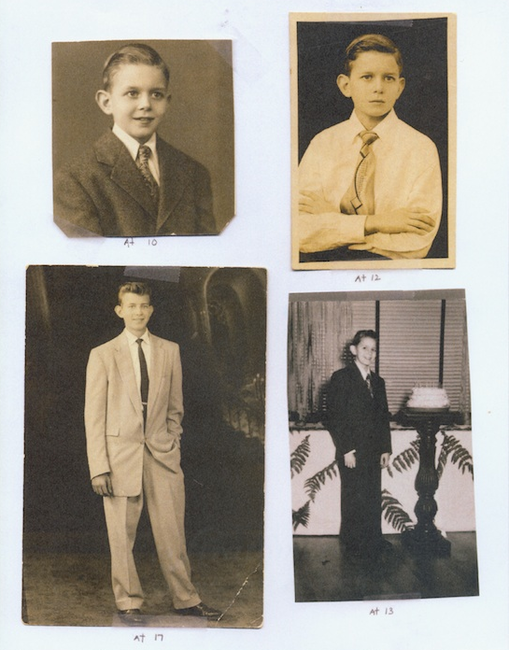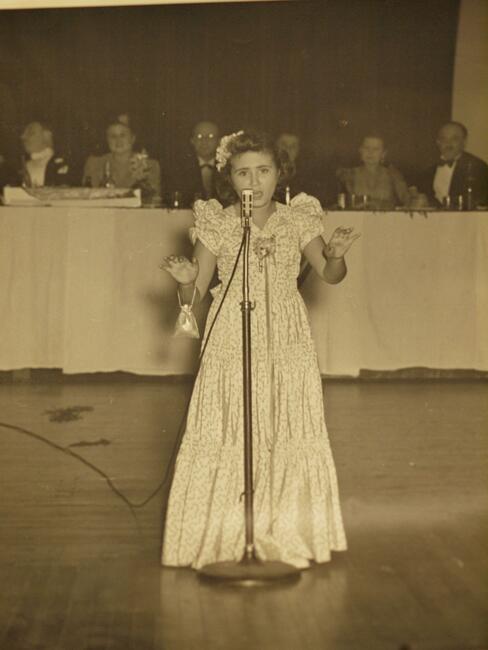Yiddish Child Stars
The Yiddish Book Center's Wexler Oral History Project presents stories from child performers of the Yiddish radio and stage.
Yiddish theater audiences were awe-struck and entertained by a child performing in Yiddish. In addition to working late into the night, traveling long distances, and dodging the Gerry Society, these young entertainers felt the pressure of representing the future of Yiddish culture.
The Wexler Oral History Project presents stories from a few of these remarkable child stars who were celebrated for their talents on the radio and stage.

Henry Kellerman: The Vunderkind of Yiddish Speech
Henry Kellerman, psychotherapist and author, began an illustrious career as a child orator at age 7. His talent for memorization and delivery of poetry and prose was discovered by his teacher, Nathan Kamen, at the Jewish People’s Fraternal Order shule.
Henry recited Yiddish for a wide range of Jewish cultural and political events, including Holocaust memorials and Zionist programs. When we interviewed Henry in 2014, he shared with us notebooks of newspaper clippings and press photos tracking his life as a child performer.
In this clip, Henry describes how for many, his recitations of poetry and prose for the Yiddish community represented a hope for the future of secular Yiddish culture.

Shirley Schachter Katz: Child Star of Yiddish Vaudeville on the Borscht Belt
Shirley's career as a child singer and performer for Yiddish vaudeville enabled her to spend time with notable theater greats. With Sholem Secunda and Abe Schwartz as her tutors, she made a splash at the 2nd Avenue Theatre in New York, on WEVD, and at the Brookside Hotel in the Borscht Belt.
In between tales of composers annotating between the notes on her music sheets, and vivid descriptions of the Catskills and its celebrities, Shirley tells us about sipping egg creams with her mother to evade the Gerry Society and child labor laws in between performances.
Gloria Weiner Weiss: Baby Weiner, the Child Sensation of the Stage and Airwaves
Gloria, stage-name "Baby Weiner," had to stand on a crate to reach the microphone in the recording studio at Boston's Hotel Touraine. Her mother involved her in the Yiddish radio and theater as a way to transmit the importance of Yiddish to Gloria, her reluctant but responsible daughter.
Even now, Gloria can sing the advertisement themes for Diamond Cream Cheese, and Morrison & Schiff's salami that she sang over the airways between the radio shows elaborate programs. Her responsibilities to the radio show, and as the "Boston child" for a New York theater company, had her traveling home in the early hours of the morning and briefly hopping into bed before attending school the next day.
Like our other two child stars, Gloria remembered how her audience percieved her as a representation of the future of secular Yiddish culture. In this clip, Gloria describes the live performances she did with the Yiddish radio company, and an experience where a fan was sure Gloria only spoke Yiddish.
Watch full length interviews with Henry Kellerman, Shirley Schachter Katz, and Gloria Weiner Weiss.
Explore the entire Wexler Oral History Project collection for more stories of Jewish neighborhoods, food, holidays, historical events, and more.
